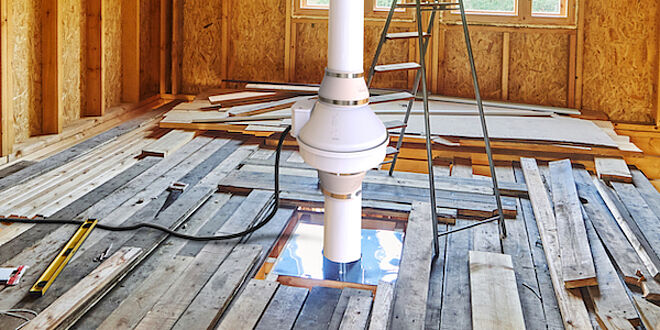
Owning a home is a big responsibility, and there are a lot of things that go into keeping your home safe and healthy for you and your family. One thing that many homeowners don’t think about is radon. Radon is a naturally occurring radioactive gas that can be dangerous to your health if it builds up to high levels in your home. If you suspect you have a radon problem, it’s important to take steps to mitigate the risk. Here’s what you need to know about radon and radon mitigation:
What is radon?
Radon is a radioactive gas that is formed naturally from the decay of uranium in the soil. It can enter your home through cracks in the foundation or other openings, and it can build up to dangerous levels if it’s not mitigated.
What are the health risks of radon?
Radon is a known carcinogen, and it has been linked to lung cancer. Exposure to high levels of radon can also cause other respiratory problems. Aside from the health risks, radon can also be a nuisance because it can give your home a musty smell. This is why it’s important to take steps to mitigate the risk if you suspect you have a radon problem.
What are the symptoms of radon poisoning?
Radon poisoning doesn’t have any noticeable symptoms, which is why it’s so important to test for radon if you suspect you may have a problem. The only way to know for sure if you have a radon problem is to test for it. The EPA recommends that all homes be tested for radon, even if they don’t have any symptoms.
How do I know if I have a radon problem?
The only way to know for sure if you have a radon problem is to test for it. Radon testing kits are available at most hardware stores, and they’re relatively simple to use. If your home tests positive for high levels of radon, you’ll need to take steps to mitigate the problem.
What are some common radon mitigation methods?
There are a few different ways to mitigate a radon problem, and the best method for your home will depend on the severity of the problem and the construction of your home. Some common radon mitigation methods include sealing cracks in your foundation and installing a radon ventilation system.
What are the benefits of radon mitigation?
Radon mitigation can help protect your family from the dangers of radon exposure and reduce your risk of lung cancer. It’s also important to note that radon levels can fluctuate, so even if you’ve had your home tested and it’s currently within safe levels, it’s important to monitor the levels and re-test your home every few years.
Why is it important to hire a professional for radon mitigation?
Radon mitigation is not a do-it-yourself project. It’s important to hire a professional because they have the experience and knowledge to properly assess your home and recommend the best course of action. They can also properly install any necessary mitigation measures, such as a radon ventilation system.
How much does radon mitigation cost?
The cost of radon mitigation varies depending on the severity of the problem and the type of mitigation system that’s installed. However, it’s important to remember that the cost of not mitigating a radon problem can be much higher, both in terms of your health and your wallet.
Where can I find a professional radon mitigation company?
There are many professional radon mitigation companies that offer services nationwide. You can search for a reputable company in your area by doing an online search or checking with your local chamber of commerce.
Why is it important to choose a reputable radon mitigation company?
When it comes to something as important as your family’s health, you want to make sure you’re working with a reputable company. A reputable radon mitigation company will have the experience and knowledge to properly assess your home and recommend the best course of action. They should also be able to provide you with references from satisfied customers.
These are just a few of the things every homeowner needs to know about radon mitigation. Radon is a serious problem, but it can be mitigated with the help of a professional. If you suspect you have a radon problem, make sure to test for it and take action to mitigate the risk.

